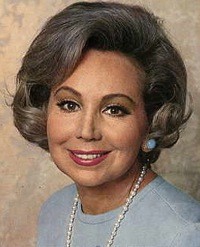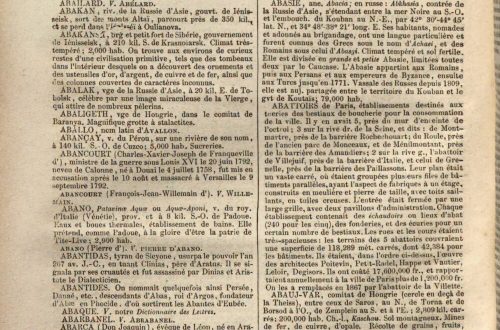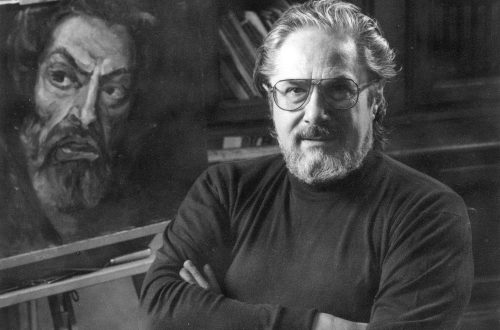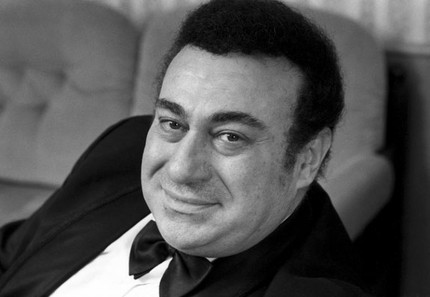
Annelize Rothenberger (Anneliese Rothenberger) |
Anneliese Rothenberger

When the sad news about the death of Anneliese Rotenberger came, the author of these lines came to mind not only a record in his personal record library with a recording of the crystal-clear voice of this lovely singer. The record was followed by an even sadder recollection that when the great tenor Franco Corelli died in 2006, the Italian television news didn’t see fit to mention it. Something similar was destined for the German soprano Anneliese Rothenberger, who died on May 24, 2010 in Münsterlingen, in the canton of Thurgau in Switzerland, not far from Lake Constance. American and English newspapers devoted heartfelt articles to her. And yet this was not enough for such a significant artist as Anneliese Rotenberger.
Life is long, full of success, recognition, love of the public. Rothenberger was born on June 19, 1924 in Mannheim. Her vocal teacher at the Higher School of Music was Erica Müller, a well-known performer of the repertoire of Richard Strauss. Rotenberger was an ideal lyric-coloratura soprano, gentle, sparkling. The voice is small, but beautiful in timbre and perfectly “educated”. It seemed that she was destined by fate for the heroines of Mozart and Richard Strauss, for roles in classical operettas: a lovely voice, the highest musicality, a charming appearance, the charm of femininity. At the age of nineteen, she entered the stage in Koblenz, and in 1946 she became a permanent soloist of the Hamburg Opera. Here she sang the role of Lulu in Berg’s opera of the same name. Rotenberger did not break with Hamburg until 1973, although her name adorned the posters of more famous theaters.
In 1954, when the singer was only thirty years old, her career took off decisively: she made her debut at the Salzburg Festival and began performing in Austria, where the doors of the Vienna Opera were open for her. For more than twenty years, Rotenberger has been the star of this famous theater, which for many music lovers is the temple of opera. In Salzburg, she sang Papagena, Flaminia in Haydn’s Lunarworld, a Straussian repertoire. Over the years, her voice has darkened a little, and she turned to the roles of Constanza in “Abduction from the Seraglio” and Fiordiligi from “Cosi fan tutte”. And yet, the greatest success accompanied her in the “lighter” parties: Sophie in “The Rosenkavalier”, Zdenka in “Arabella”, Adele in “Die Fledermaus”. Sophie became her “signature” party, in which Rotenberger remained unforgettable and unsurpassed. The critic of The New Times praised her this way: “There is only one word for her. She’s wonderful.” The famous singer Lotte Lehman called Anneliese “the best Sophie in the world.” Fortunately, Rothenberger’s 1962 interpretation was caught on film. Herbert von Karajan stood behind the console, and Elisabeth Schwarzkopf was the singer’s partner in the role of Marshall. Her debuts on the stages of Milan’s La Scala and the Teatro Colon in Buenos Aires also took place in the role of Sophie. But at the Metropolitan Opera in New York, Rotenberger first appeared in the role of Zdenka. And here the admirers of the wonderful singer were lucky: the Munich performance of “Arabella” conducted by Kylbert and with the participation of Lisa Della Casa and Dietrich Fischer-Dieskau was captured on video. And in the role of Adele, the art of Anneliese Rotenberger can be enjoyed by watching the film version of the operetta called “Oh … Rosalind!”, Released in 1955.
At the Met, the singer made her debut in 1960 in one of her best roles, Zdenka in Arabella. She sang on the New York stage 48 times and was a crowd favorite. In the annals of opera art, the production of Un ballo in maschera with Rotenberger as Oscar, Leoni Rizanek as Amelia and Carlo Bergonzi as Richard remained in the annals of opera.
Rotenberger sang Elijah in Idomeneo, Susanna in The Marriage of Figaro, Zerlina in Don Giovanni, Despina in Cosi fan tutte, the Queen of the Night and Pamina in The Magic Flute, the Composer in Ariadne auf Naxos, Gilda in Rigoletto, Violetta in La Traviata, Oscar in Un ballo in maschera, Mimi and Musetta in La bohème, were irresistible in classical operetta: Hanna Glavari in The Merry Widow and Fiammetta in Zuppe’s Boccaccio won her success. The singer made forays into the area of a rarely performed repertoire: among her parts are Cupid in Gluck’s opera Orpheus and Eurydice, Marta in Flotov’s opera of the same name, in which Nikolai Gedda was her partner many times and which they recorded in 1968, Gretel in Hansel and Gretel” Humperdinck. All this would have been enough for a wonderful career, but the artist’s curiosity led the singer to the new and sometimes unknown. Not only Lulu in Berg’s opera of the same name, but roles in Einem’s Trial, in Hindemith’s The Painter Mathis, in Poulenc’s Dialogues of the Carmelites. Rotenberger also participated in the world premieres of two operas by Rolf Liebermann: “Penelope” (1954) and “School of Women” (1957), which took place as part of the Salzburg Festival. In 1967, she performed as Madame Bovary in Sutermeister’s opera of the same name at the Zurich Opera. Needless to say, the singer was a delightful interpreter of German song lyrics.
In 1971, Rotenberger began working on television. In this area, she was no less effective and attractive: the public adored her. She has the honor of discovering many musical talents. Her programs “Annelise Rotenberger has the honor …” and “Operetta – the land of dreams” gained the greatest popularity. In 1972, her autobiography was published.
In 1983, Anneliese Rotenberger left the opera stage and in 1989 gave her last concert. In 2003, she was awarded the ECHO Award. On the island of Mainau on the Bodensee there is an International Vocal Competition named after her.
The gift of self-irony is truly a rare gift. In an interview, the elderly singer said: “When people meet me on the street, they ask:“ What a pity that we can no longer listen to you. But I think: “It would be better if they said:“ The old woman is still singing. “The Best Sophie in the World” left this world on May 24, 2010.
“An angelic voice… it can be compared to Meissen porcelain,” wrote an Italian fan of Rothenberger upon receiving the news of her death. How can you disagree with her?





